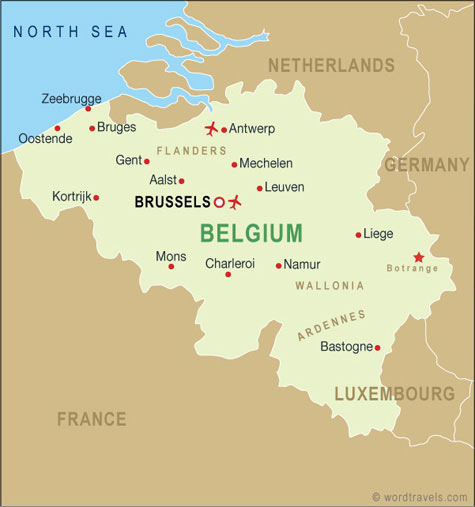
I will try to give a view of the present Belgian political crisis. In order to do that, I will give a bit background about the way Belgium is governed.
In Belgium, there are three national languages: in order of the quantity of the population speaking it: Dutch (mainly spoken in Flanders and somehow differing from the Dutch spoken in Holland), French (mainly spoken in Walloon) and German (spoken in the eastern-Walloon site of Belgium).
Belgium divided by the three languages
speaking, which are the basis for the three
communities. (Orange: dutch-speaking,
red: french-speaking, green: german-
speaking.)
We have six separated governments [these are: the federal government (national level), the Walloon regional one, Walloon community one, the Flemish one (where community and regional are put together), the regional Brussels government and the government of the German community. They are being controlled by parliaments, of which we have seven: the chamber of representants and the senate, the Flemish - and the Walloon parliament, the parliament of the Brussels region, the parliament of the German-speaking community, the parliament of the French-speaking community. The communities have the task to defend the interests of language-related aspects of the community they govern. The regional governments are charged with more economical aspects of the regions they govern.

So, every level of policy has his own elements to regulate, making it somehow a mess for the population to understand how their own country functions, let alone for outsiders…

 Above some typical Belgian products: chocolates, 'Brusselse wafel' and beer.
Above some typical Belgian products: chocolates, 'Brusselse wafel' and beer.






